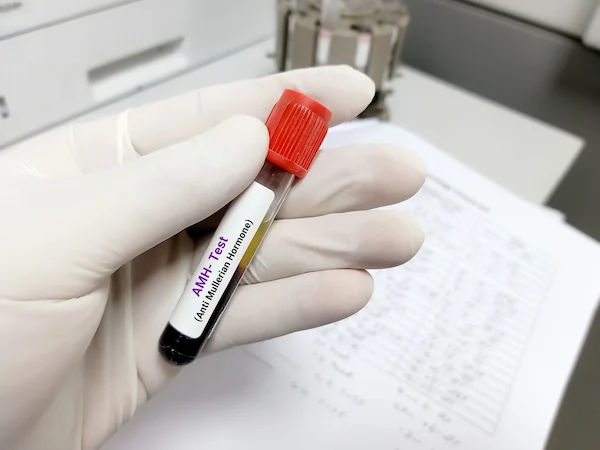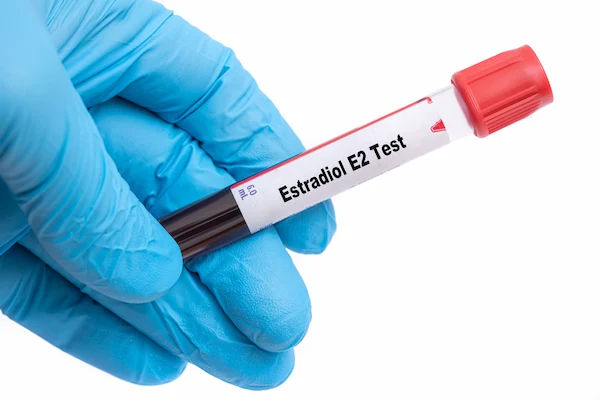Frequent Infections in Kids: The Ferritin Test Connection
Does your child get sick often? Learn about the link between low iron stores, measured by the ferritin test, and frequent infections, and find out if your child needs to be tested.

Written by Dr. J T Hema Pratima
Reviewed by Dr. Rohinipriyanka Pondugula MBBS
Last updated on 8th Aug, 2025

It’s normal for children to catch colds and coughs, especially when they’re exposed to new environments like daycare or school. But if your child seems to get sick more often than others or takes longer to recover, it may be a sign of something deeper. One commonly overlooked factor is iron deficiency in kids, particularly low levels of ferritin, a protein that stores iron and plays a key role in immune function.
When ferritin levels are low, the body may struggle to produce enough healthy red blood cells and maintain a strong immune response, leaving children more vulnerable to frequent infections. A simple ferritin test for children can help identify whether poor iron stores are contributing to their recurring illnesses. This article will explore the link between ferritin and immunity, explain how the ferritin test works, and offer practical steps parents can take to support their child’s health through early detection and treatment.
What is Ferritin and Why is it Important for Children?
Ferritin is a protein found inside the body’s cells that stores iron and releases it when needed. You can think of it as the body’s iron reserve. While iron itself is essential for many functions, ferritin gives doctors a reliable way to measure how much iron is stored and available for use.
Iron plays a critical role in a child’s growth and development. It’s a key part of haemoglobin. But iron does much more than help with oxygen transport. It also supports:
- Energy production by helping the body turn food into fuel.
- Brain development, which is vital for learning and concentration.
- Muscle growth and physical activity.
- A strong immune system, which helps fight off infections.
Low ferritin levels can be an early sign of iron deficiency, even before symptoms like fatigue or frequent illness appear. That’s why checking ferritin can be an important step in understanding a child’s overall health.
The Link Between Low Ferritin and Weakened Immunity
When a child has low ferritin levels, it means their body's iron stores are low. This condition is known as iron deficiency, and if severe enough, it can lead to iron deficiency anaemia. Even before anaemia develops, low iron stores can significantly impact the immune system.
Here's how low ferritin can weaken a child's ability to fight off infections:
- Impact on Immune Cells: Iron is essential for the proper development and function of various immune cells, including lymphocytes (T-cells and B-cells) and natural killer cells. These cells are the frontline defenders against viruses, bacteria, and other pathogens. Without enough iron, these cells cannot mature or work effectively.
- Reduced Antibody Production: Antibodies are proteins that identify and neutralise foreign invaders. Iron deficiency can impair the body's ability to produce these crucial antibodies, making it harder for a child to fight off infections they've encountered before or to respond to new ones.
- Impaired Phagocytosis: Phagocytes are immune cells that "eat" and destroy harmful microorganisms. Iron is needed for these cells to perform their job efficiently. Low iron can reduce their ability to engulf and destroy pathogens.
- Lowered Resistance to Infection: Overall, a child with low ferritin has a less robust immune response. This means they might:
Catch colds and flu more easily. - Experience more severe symptoms when sick.
- Take longer to recover from illnesses.
- Be more susceptible to recurrent infections, such as ear infections, respiratory infections, and even prolonged viral illnesses.
When to Consider a Ferritin Test for Children?
A doctor might suggest a ferritin test for children if your child shows signs that could point to iron deficiency in kids or a weakened immune system. These signs might include:
- Frequent Infections: Getting sick often, especially with respiratory infections (colds, coughs) or ear infections, or taking a long time to get better.
- Pale Skin: Noticeable paleness, particularly on the inner eyelids or nails.
- Tiredness and Low Energy: Persistent fatigue, even after adequate sleep, or a lack of usual energy for play.
- Poor Appetite: A consistent lack of interest in food or very picky eating habits.
- Behavioural Changes: Irritability, difficulty concentrating, or poor school performance.
- Unusual Cravings (Pica): Craving non-food items like ice, dirt, or clay.
- Slow Growth or Development: If your child's growth seems slower than expected for their age.
- Dietary Factors: If your child is a vegetarian or vegan, has a very limited diet, or consumes a lot of cow's milk (which can inhibit iron absorption) without enough iron-rich foods.
- Premature Birth or Low Birth Weight: Infants born prematurely or with low birth weight are at higher risk of iron deficiency.
- Chronic Health Conditions: Certain long-term conditions can affect iron absorption or increase iron loss.
What to Expect from a Ferritin Test?
A ferritin test for children is a simple blood test. A healthcare professional will take a small blood sample, usually from a vein in your child's arm. This procedure is quick and generally involves minimal discomfort.
Unlike some other blood tests, a ferritin test usually does not require fasting.
What the Results Mean:
Once the laboratory has analysed the blood sample, your doctor will interpret the ferritin levels. Normal ranges can vary slightly between different laboratories and also depend on your child's age. Here are some general guidelines for ferritin levels (measured in nanograms per millilitre, ng/mL):
Normal Ferritin Levels: These indicate that your child has adequate iron stores.
- Newborns: Typically 25-200 ng/mL
- 1 month old: Can be higher, around 200-600 ng/mL
- 2-5 months old: Often 50-200 ng/mL
- Children (6 months to 15 years): Generally 7-140 ng/mL
- Low Ferritin Levels: If ferritin levels are lower than the normal range for your child's age, it indicates iron deficiency in kids. For instance, a ferritin level below 15 ng/mL in children is often considered a clear sign of iron deficiency. Even if your child's haemoglobin is still within the normal range, low ferritin means their iron stores are depleted. This is a sign that they are at risk of iron deficiency anaemia and may already be experiencing symptoms related to low iron, including a weakened immune system.
- High Ferritin Levels: While less common, very high ferritin levels can also be a concern. They might suggest inflammation (as ferritin can increase during infections or inflammatory conditions), liver disease, or conditions like hemochromatosis (a disorder where the body absorbs too much iron). Your doctor will investigate high levels further if found.
- It is crucial to discuss all results with your child's doctor. They will consider your child's symptoms, medical history, and other factors to make a complete assessment and recommend the appropriate next steps.
Health Tests for Children with Apollo 24|7
Keeping track of your child’s health is easier with Apollo 24|7. Whether your paediatrician suggests a Ferritin Test to check iron levels or a complete health check-up, Apollo offers trusted testing services designed for families.
- Simple online booking for individual tests or full check-up packages
- Home sample collection, so your child can stay comfortable
- Quick, reliable results delivered directly to your phone or email
- Trusted lab quality with NABL-accredited facilities
- Follow up with Apollo doctors to understand your child’s results and next steps
Get Your Health Assessed Here
Conclusion
Recurring infections in children may signal that their immune system isn’t functioning at its best. One possible contributor is low iron stores, which are reflected by reduced ferritin levels. Iron plays a key role in supporting immune function, and when ferritin is low, the body may struggle to fight off common illnesses effectively.




